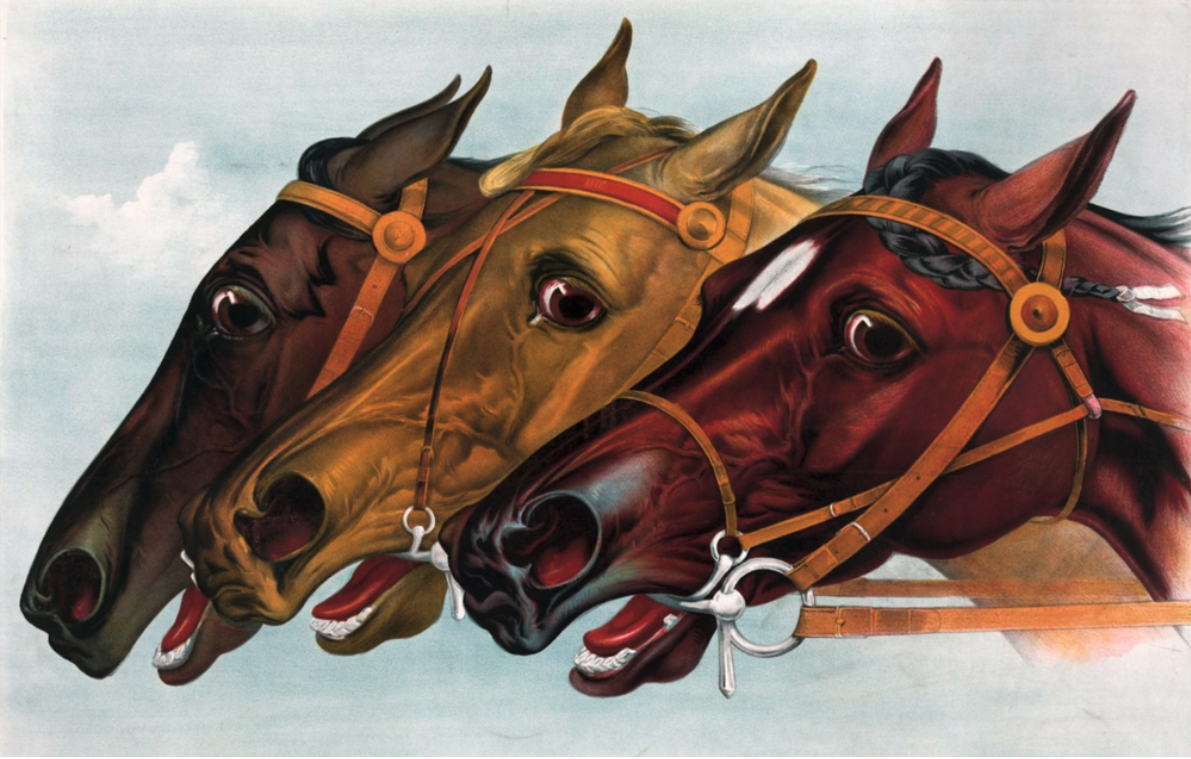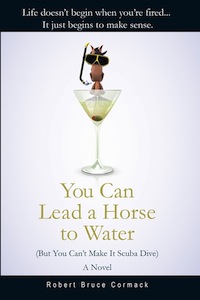What's The Rush?
Writing blogs isn't a first-to-the-finish game.

“The profession of writing makes horse racing seem like a solid, stable business.” John Steinbeck
It’s funny how articles on Medium are reading like a racing program these days. People keep going on about how fast they write, how many wins they’ve had in the win column. I’m surprised the home page doesn’t have a tote board and a betting kiosk.
What is it about speed these days? One writer said he only spends an hour and a half writing an article. He turns out five pieces a week.
In racing circles, that might be called “reckless speed,” but he’s clearly a favourite here on Medium, bringing in substantial monthly purses.
I’m what they call a “mudder.”
Writing should be a business of mud and rain. You shouldn’t finish looking all natty.
Mudders do well on wet tracks. They cross the finish line dirty, but you know they’ve run a hell of a race. That appeals to me. Writing should be a business of mud and rain. You shouldn’t finish looking all natty.
I spent forty years in advertising. I saw plenty of slick people. They were very shallow individuals. Fast writing smacks of the same thing. In that rush to put words down, the words themselves don’t seem to matter.
They also give a false sense of concision. William Strunk J. once said that “Vigorous writing is concise.” He was speaking of unnecessary words. He wasn’t saying be concise at the expense of content or ideas.
Too often, I come away from articles wondering what I’ve learned. In the case of the fast earners, I doubt I’ve learned anything. It’s all off-the top-of-the-head thoughts, structured to be a fast read.
You could call it “dry track” racing, where conditions are so perfect, you basically point the horse, dig in your heels, and head for the finish.
They don’t care how hard the race was won, they want to move on to the next race.
Most Pick-6 betters will tell you that’s all that matters. They don’t care how hard the race was won, they want to move on to the next race.
But if races are just about finishing, then the horses only mean something when they win. If they don’t, they end up on a hobby farm.
We’re in the same boat. There’s nothing wrong with writing to earn. I did it for forty years. The problem is when that’s all that matters.
I remember Paul McCartney saying, “I don’t know why people think we were anti-materialistic. That’s not true at all. John and I often said, ‘Let’s sit down and write a swimming pool.’”
Songs can be swimming pools. They can also be great songs. Even a soppy one like “Yesterday” still has the incredible line “Yesterday came suddenly.” The song was originally called “Scrambled Eggs.” It took months of hard work before it became the classic we know today,
As McCartney would tell you, it was “a helluva race,” something to consider when you’re bragging about writing articles in an hour and a half.
After an hour and a half, I probably have the title and maybe the sub line.
Perhaps that’s why I’m a mudder. After an hour and a half, I probably have the title and maybe the sub line. Then I spend a day, possibly two, constructing the story itself. Sometimes half that time is spent on research.
For some reason, I want details in each piece that make people say, “Holy shit.” To do that, I have to say “Holy shit.” It takes a lot of digging.
My greatest “Holy shit” moment came from a poll done in Southern California. Subjects were asked if they’d stop having sex to answer the phone. Twelve percent admitted they would. Seventy percent said they would in an emergency. The twelve percent felt every call was an emergency. As one woman explained, “Who knows till you answer, right?”
I’m not saying every word you write has to be profound. What I am saying is that we should feel something has happened. Maybe you’re admitting you don’t understand the world. Or maybe something as simple as a conversation with a cab driver had a serious impact on your life.
But he also said you should always try for something “that’s never been done or that others have tried and failed.”
If I can relate it back to horse racing again, if we’re only interested in winning, the day will come when we won’t. It happens to all writers. Even Hemingway said there are days when writing is like “blasting through rock.”
But he also said you should always try for something “that’s never been done or that others have tried and failed.”
That doesn’t come from speed, or ending up at the finish line looking all natty. People need to know you’ve run a hell of a race, possibly with the mud clods still on your clothes, and your goggles a mess.
Writing will always be motion. If your words are moving good, and the thought behind them is good, then you’ll have an article people remember.
Otherwise, it’s just an exercise. You can say you ran the race — and possibly won the purse — but it hardly matters. The numbers come in, the next bets are made, people move along.
So she did, and it was a good article, and she wrote to the reader, thanking them for reminding her she’d written it.
They don’t see the point in sticking around.
Let’s look at a different scenario, one I like to see. A writer on Medium was contacted by someone who read article she wrote two years ago. “I didn’t even recall that one,” the writer said. “I had to go back and reread it.” So she did, and it was a good article, and she wrote to the reader, thanking them for reminding her she’d written it.
For someone to retrace your steps, to find something that affects them, is a big thing. It means they aren’t just there for the next race. They hung around the paddocks. They took an interest in you.
That’s not always the case, but it can happen, and sometimes it’s worth the extra effort to make it a likelihood instead of a possibility.
As Hemingway also said, when you stick your neck out, when you try what others have tried and failed, “Sometimes, with luck, you succeed.”
Robert Cormack is a journalist, novelist and blogger. His first novel “You Can Lead a Horse to Water (But You Can’t Make It Scuba Dive)” is available online or at most major bookstores (now in paperback). Check out Robert’s other articles and stories at robertcormack.net

in Café beBee
Articles from Robert Cormack
View blog
Is “Succession” explaining Russia's leader better than the media? · “In modern war, you will die lik ...

It could be worse than losing. · “We are what we pretend to be, so we must be careful what we preten ...

When you start dispersing crowds with James Blunt songs, it makes you wonder if the world is funny o ...
Related professionals
You may be interested in these jobs
-

Conseiller principal ou Conseillère principale, Gouvernance, risques et conformité
Found in: Talent CA C2 - 1 week ago
Desjardins Montreal, CanadaPoste temporaire d'une durée de 13 mois. · À titre de conseiller(-ère) principal(e), Gouvernance, risques et conformité (GRC), vous contribuez à la conception, le déploiement et la coordination du cadre de gouvernance et au respect des exigences réglementaires. · Vous exercez un ...
-
Directeur(trice) des opérations
Found in: Talent CA C2 - 4 days ago
Ski Saint-Bruno St-Bruno-de-Montarville, CanadaInformations sur ce poste · Description détaillée · Ski Saint-Bruno et Ski Mont-Blanc unissent leurs efforts dans l'objectif de bâtir des équipes d'expert(e)s, spécialisé(e)s et passionné(e)s dans l'industrie du tourisme et du loisir. Ces deux piliers de l'industrie du ski off ...
-
Product Marketing Specialist
Found in: beBee S2 CA - 6 days ago
GE Renewable Energy Markham, Canada Full timeJob Description Summary · The successful candidate will be responsible for planning and executing marketing activities associated with new solution introductions (product launches) as well as integrated marketing campaigns that align with Grid Automation's strategic vision and dr ...



Comments
Robert Cormack
2 years ago #7
We all have good days and bad days, Jim. Sometimes we write something beyond our talent, other times we embarrass ourselves. I tend to embarrass myself. Only careful editing and constant admonishment helps.
Zacharias 🐝 Voulgaris
2 years ago #6
I prefer to write following the “advice” of the Beach Boys from their hit song “Kokomo”: “we'll get there fast and then we'll take it slow”. Seriously, getting the first draft out there quickly isn't all bad, but then it's best to take your time revising it, passing it through a grammar & spelling checker, and then revising it some more, paying attention to the word count too. It's definitely not a race nor something to take lightly! Cheers
Jim Murray
2 years ago #5
I like the point you're making but you do know that it doesn't apply to everyone. There are writers out there who are able to slam it down in a single pass and only go back to correct the typos. I have known a few people like that. Maybe you have too. Granted they are the exception that makes the rule. But still. When I met Dylan and talked to him about that, he admitted he kind of had a leg in both camps. He could write a one song and it would be resistant to change or he could fuck around for days with another. It takes all kinds of cooks to make a downtown restaurant scene.
Robert Cormack
2 years ago #4
Probably right, Pascal.
Pascal Derrien
2 years ago #3
It has more to do with instant gratification than writing I think
Robert Cormack
2 years ago #2
Do't get me wrong, Ken, I like to finish, even if Wendy does call me selfish.
Ken Boddie
2 years ago #1
So true, Rob. Writing for me isn’t a race either. It demands research, careful selection of words and context, photos to embellish, and then editing checks for readability and sensibility, grammar and spelling. For me it’s more of a bumpy trot or slow canter to the finish line, on a sturdy Clydesdale, often heavy going, rather than a fleeting gallop on a thoroughbred. Pity so many readers only see the finish and don’t appreciate the journey.